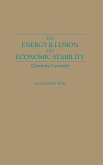This book grew out of a study that was commissioned by the West Virginia University Energy and Water Research Center. It was designed to assess the impact of electricity imports on West Virginia's economy and to determine what efforts, if any, should be made to increase electricity exports. Because organizations involved in the electricity industry operate on the multi-state level, the outcome is a work that considers the electricity trade from the Appalachians to the Northeast and the physical, political, geographic, and economic factors influencing this trade now and in the future. Early chapters provide an introduction to and overview of the American electricity industry. Twenty years ago energy forecasters predicted that electricity demand would grow at a healthy rate and that the only way to satisfy future demand was to build new, and usually larger, power plants. Little, if any, thought was given to electricity conservation, alternatives to centralized power plants, or changing demand patterns. This mentality brought disaster to many utility companies that ordered unnecessarily expensive power plants. Recent thinking dictates that the nation has sufficient generating supply, conservation can reduce the need for power plants, and those plants that are needed can be smaller, locally-sited facilities. This perception is quickly changing, the authors contend, as certain regions are now in a dangerous position because energy demand is increasing and existing capacity is aging. The balance of the book discusses the steps that must be taken to insure cost-effective use of electricity and the addition of new supplies. Among the issues considered are the power trade alternative; the economic impacts of the electricity industry, (using West Virginia as a test case); acid rain; Canadian power imports; siting energy facilities; and the cost-effectiveness of the various strategies. Given the diverse backgrounds of the coauthors, this book will have widespread appeal in the fields of economics, electrical engineering, geography, mineral resource economics, and political science. Members of the electrical industry itself should also consider this book as they grapple with guaranteeing the nation's energy supply into the next century.
Hinweis: Dieser Artikel kann nur an eine deutsche Lieferadresse ausgeliefert werden.
Hinweis: Dieser Artikel kann nur an eine deutsche Lieferadresse ausgeliefert werden.








